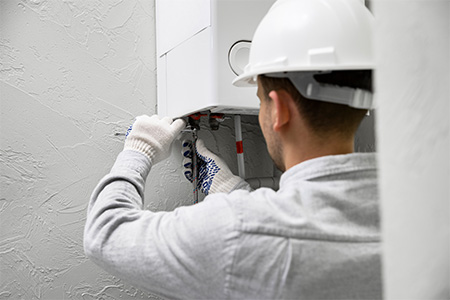A geyser is a valuable appliance that heats water for various purposes. However, like any
device, it can develop issues over time. This article will provide information on the most
common geyser problems, their solutions, and maintenance tips.
Common Geyser Problems
-
Water not heating: This issue can occur due to a tripped circuit breaker, faulty
wiring, rusting, or a malfunctioning thermostat. To prevent this, use a surge protector,
inspect your geyser's wiring regularly, clean your geyser to avoid rusting, and follow the
manufacturer's instructions for setting the thermostat
-
Constant water leakage: A problem in the drip tray, an overflow in the pipe, a faulty
pressure control valve, or a damaged gasket can cause this issue. To prevent leakage,
install a pressure-reducing valve, adjust the thermostat settings, inspect your geyser for
leaks regularly, and fix them promptly.
-
Overheating geyser: This dangerous problem can occur due to a faulty thermostat,
heating element, pilot controller, or gas supply issue. Prevent overheating by installing a
temperature and pressure relief valve, setting the thermostat at a safe level, and
monitoring the gas pressure regularly.
-
Water leaking through the ceiling: This severe problem can be caused by a burst in
the geyser tank or an insufficient drip tray and overflow system. Place your geyser safely,
inspect your tank for corrosion or cracks regularly, and use quality materials for
installation.
Geyser Maintenance Tips
Proper maintenance can extend the lifespan and efficiency of your geyser. Here are some tips:
-
Flush out your geyser tank at least once a year to remove sediment and scale buildup. This
can improve your geyser's heating and water quality and prevent corrosion and leaks.
-
Replace your anode rod every few years to prevent corrosion and rusting of your geyser tank.
The anode rod is a metal rod that sacrifices itself to protect the tank from corrosion. Over
time, it can wear out and expose the tank to rusting.
-
Test your temperature and pressure relief valve every six months to ensure it works
correctly. This valve is a safety device that releases excess heat and pressure from your
geyser to prevent overheating or explosion. You can test it by lifting the lever and
checking if water flows out of the discharge pipe. If not, you need to replace the valve.
-
Insulate your geyser tank and pipes to reduce heat loss and energy consumption. This can
help you save money on your electricity or gas bills and keep your water hot for longer. You
can use foam or fiberglass insulation to wrap around your tank and pipes.
-
Hire a professional plumber for the annual inspection and service of your geyser. This can
help you detect and fix potential problems before they become severe or costly.
Handybird - Best Plumbing Services In Coimbatore
One of the best ways to hire a professional plumber for your geyser is to contact Handybird, a reputed home service company in Coimbatore
that provides plumbing services.
Handybird has a team of experienced and qualified plumbers who can handle any geyser issue
efficiently and professionally. Whether you need to install, repair, or maintain your geyser, we
can help you with our fast and reliable service.
You can call us at 9047049505 or visit here to
book an appointment. Handybird also offers other home services such as AC repair, electrical
work, curtains & blinds.
